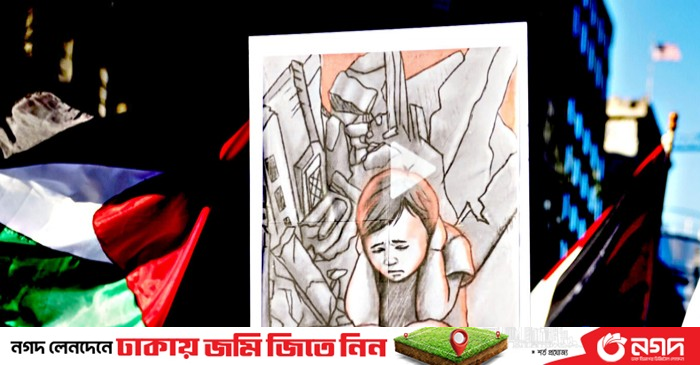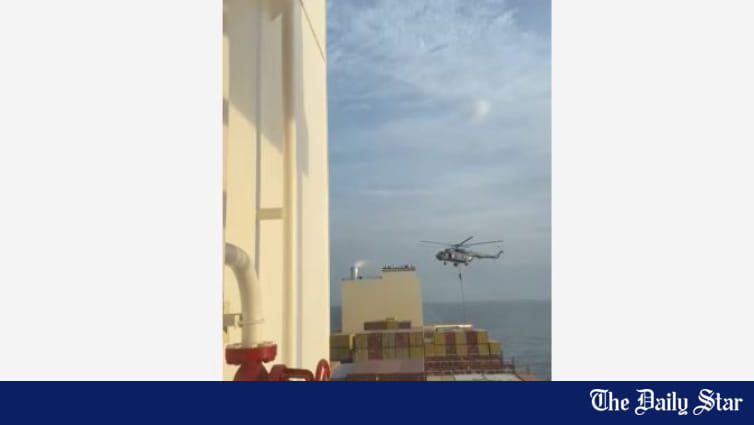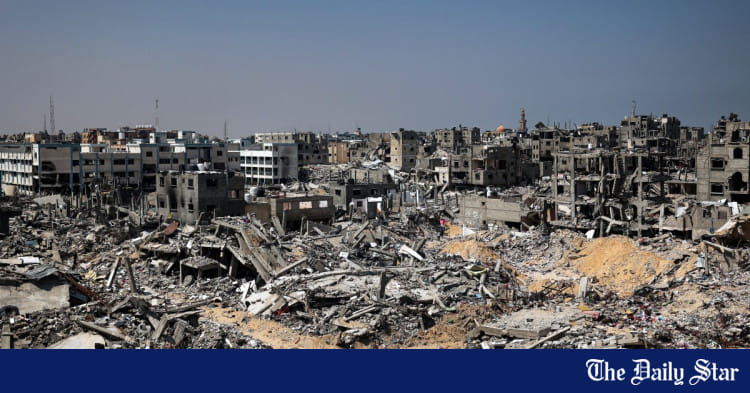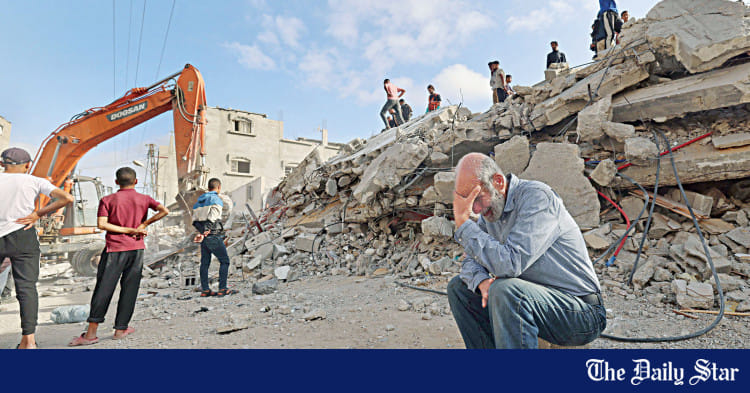Saif
Senior Member
- Messages
- 17,408
- Likes
- 8,373
- Nation

- Residence

- Axis Group


Norway ready to recognise Palestinian state
Norway is ready to recognise a Palestinian state together with other countries, its prime minister said on Friday. In November, Norway’s parliament adopted a proposal for the country to be prepared to recognise an independent Palestinian state...
 www.newagebd.net
www.newagebd.net
Norway ready to recognise Palestinian state
Agence France-Presse . Oslo, Norway | Published: 20:46, Apr 12,2024 | Updated: 21:01, Apr 12,2024

Norwegian prime minister Jonas Gahr Stoere (R) and Spanish prime minister Pedro Sanchez address a press conference during a bilateral meeting in Oslo on Friday. —AFP photo
Norway is ready to recognise a Palestinian state together with other countries, its prime minister said on Friday while hosting Spanish counterpart Pedro Sanchez, who is seeking support for the cause.
Norwegian prime minister Jonas Gahr Store told reporters that such a decision would need to be taken in close coordination with 'like-minded countries'.
'Norway stands ready to recognise the state of Palestine,' Store told a joint press conference with Sanchez.
'We have not set a firm timetable,' Store added.
In November, Norway's parliament adopted a government proposal for the country to be prepared to recognise an independent Palestinian state.
Norway also hosted Israeli-Palestinian peace talks at the beginning of the 1990s, which led to the Oslo Accords.
Sanchez is currently on a tour of Poland, Norway and Ireland this week to drum up support for the recognition of a Palestinian state, according to a Spanish government spokesperson.
On March 22, Spain issued a statement with Ireland, Malta and Slovenia on the sidelines of an EU leaders summit, saying they were 'ready to recognise Palestine' in a move that would happen when 'the circumstances are right'.
In the past week, Sanchez told reporters travelling with him on his Middle East tour that he hoped it would happen by the end of June.
Store on Friday said that he welcomed Sanchez's initiative to consult among countries to 'strengthen coordination'.
'We will intensify that coordination in the weeks to come,' Store said.
The Spanish leader has repeatedly angered Israel with his outspoken comments since the start of the war between Israel and Hamas.
The war in the Gaza Strip erupted after Hamas's unprecedented attack on southern Israel that resulted in the deaths of 1,170 people, mostly civilians, according to an AFP tally based on official figures.
Israel's offensive has killed at least 33,634 Palestinians, most of them women and children, according to the health ministry in Hamas-run Gaza.
Agence France-Presse . Oslo, Norway | Published: 20:46, Apr 12,2024 | Updated: 21:01, Apr 12,2024
Norwegian prime minister Jonas Gahr Stoere (R) and Spanish prime minister Pedro Sanchez address a press conference during a bilateral meeting in Oslo on Friday. —AFP photo
Norway is ready to recognise a Palestinian state together with other countries, its prime minister said on Friday while hosting Spanish counterpart Pedro Sanchez, who is seeking support for the cause.
Norwegian prime minister Jonas Gahr Store told reporters that such a decision would need to be taken in close coordination with 'like-minded countries'.
'Norway stands ready to recognise the state of Palestine,' Store told a joint press conference with Sanchez.
'We have not set a firm timetable,' Store added.
In November, Norway's parliament adopted a government proposal for the country to be prepared to recognise an independent Palestinian state.
Norway also hosted Israeli-Palestinian peace talks at the beginning of the 1990s, which led to the Oslo Accords.
Sanchez is currently on a tour of Poland, Norway and Ireland this week to drum up support for the recognition of a Palestinian state, according to a Spanish government spokesperson.
On March 22, Spain issued a statement with Ireland, Malta and Slovenia on the sidelines of an EU leaders summit, saying they were 'ready to recognise Palestine' in a move that would happen when 'the circumstances are right'.
In the past week, Sanchez told reporters travelling with him on his Middle East tour that he hoped it would happen by the end of June.
Store on Friday said that he welcomed Sanchez's initiative to consult among countries to 'strengthen coordination'.
'We will intensify that coordination in the weeks to come,' Store said.
The Spanish leader has repeatedly angered Israel with his outspoken comments since the start of the war between Israel and Hamas.
The war in the Gaza Strip erupted after Hamas's unprecedented attack on southern Israel that resulted in the deaths of 1,170 people, mostly civilians, according to an AFP tally based on official figures.
Israel's offensive has killed at least 33,634 Palestinians, most of them women and children, according to the health ministry in Hamas-run Gaza.








